
How To Build Self-Trust
I occasionally ask about physical sensations when coaching, and there’s a very specific reason for that. Here’s how simply asking starts to build self-trust.

I occasionally ask about physical sensations when coaching, and there’s a very specific reason for that. Here’s how simply asking starts to build self-trust.

Here’s an explanation on how being aware of your body’s signals helps you manage your energy.
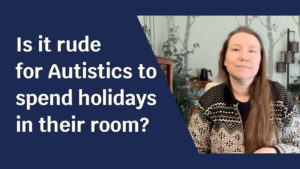
Is it rude for Autistics to spend holiday gatherings in their room, or opt out, instead of with the family? Is it promoting bad behavior? And how do you explain it to family members?

How do you follow the advice to integrate sensory awareness when you’re not getting info from your body?
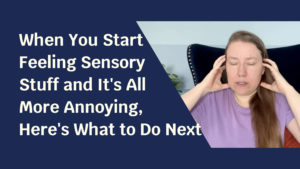
A common experience with later identified Autistics who start figuring out all the sensory stuff that they’ve been shutting out, is that instead of things getting better, everything is more annoying.

Sensory objects are often very helpful, but spending a lot of money on them might not work for you. Here’s some ideas for cheap sensory products.

Lots of us are trained as we grow up to ignore our internal signals of what we need. There’s a lot of different aspects in there to unpack, and I’m going to address one of them.
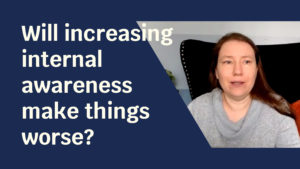
A lot of times there’s a fear that if you increase internal awareness you’ll just make things worse, but you can avoid that.

How do you cope with sensory needs when you’re out in public? Here’s a framework and a few tips.
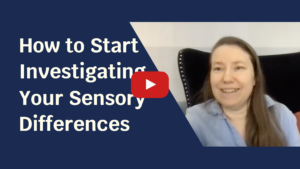
Do you want to get better at figuring out your sensory differences, to understand your own body better? Here’s a few ideas on how to get started.
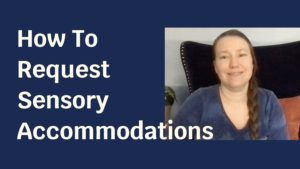
It can be hard to convey what you need when requesting sensory accommodations. Here’s a framework for how.

This phrase has helped me gradually shift from a negative outlook on sensory issues, socializing, and myself, to a tendency toward looking for the good.

Theory of Mind is often pointed out as an autistic deficit, but is it really that? Is something else going on? And is it just autistics that find this challenging?

Masking and unmasking is a weird equation, and there’s a lot to take into account when doing them.

I’ve been thinking about something I wrote for a friend’s daughter a couple years ago.
We don’t spam or sell. Promise. Unsubscribe at any time.
Read our privacy policy here.
The information on this site is not intended or implied to be a substitute for psychotherapy, medical advice, diagnosis, or treatment.
© 2020-2024 Autism Chrysalis LLC.